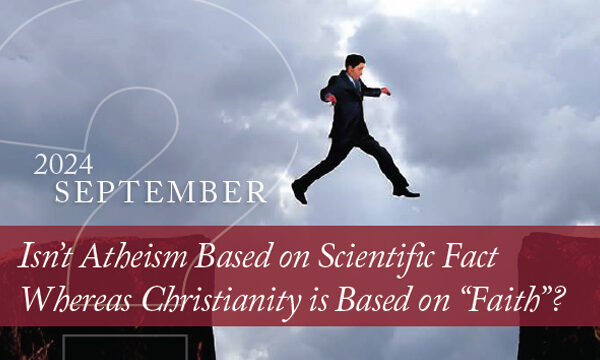Back to series


Martin Luther (1483-1546)
Click here to open a Pint- Friendly PDF
Historian John Todd notes, “In most big libraries books by and about Martin Luther occupy more shelf room than those concerned with any other historical figure except Jesus of Nazareth.” There are many strong feelings about Luther that range from hate to love. He was once called “a demon in the appearance of a man.” Another opponent called him “a wild boar in the vineyard.” Psychologist Erik Erikson, in Young Man Luther, psychoanalyzes Luther, concluding that he was a severely disturbed young man arising from harsh treatment by his parents and teachers.
On the other hand, there are those who confer on Luther virtual sainthood. One writer says, “Thousands have recognized in Luther the greatest witness of the truth since the days of the apostles.” Another scholar says, “A man may tell how far he has advanced in theology by the degree in which he is pleased by Luther’s writings.”
Other scholars are more measured in their evaluations. Historian Martin Marty, while pointing out Luther’s faults, calls him a “titanic character” who has left his “stamp on history.” Kurt Aland, noted scholar, acknowledges his influence, saying, “The intellectual life of the modern age would not have come into existence without Martin Luther and the Reformation.”
Martin Luder (he later took the name Luther) was born November 10, 1483 (died February 18, 1546) in Eisleben, Germany. His father, Hans Luder, was a miner who rose to ownership of several mines. Martin was brought up strictly. One early story has father Hans seeking Martin’s forgiveness for a beating. Hans wanted Martin to become a lawyer and sent him to the University of Erfurt. He did well in all areas but especially at public debates, earning the nickname “The Philosopher.” At age 22, while returning to the university after a visit to his family, Martin was caught in a severe thunderstorm. When a bolt of lightning struck the ground close by, he cried out, “Help me, St. Anne, I will become a monk.” Coming safely through the storm, he spent several weeks discussing his vow with friends, and finally decided to enter an Augustinian monastery.
Christ Alone
Martin pursued the monastic life with great vigor, especially in the ascetic practices. He would often go without sleep, endure cold without a blanket, and whip himself. He later wrote:
It’s true. I was a good monk and kept my order so strictly that if ever a monk could get to heaven through
monastic discipline, I should have entered in. All my companions in the monastery who knew me would
bear me out in this. For if I had gone on much longer, I would have martyred myself to death, what with vigils,
prayers, readings, and other works.
In an effort to find peace of mind while a monk, Luther used to confess his sins daily (up to five hours a day). Yet, despite all his efforts, he could not find peace for his conscience. After having done everything according to the precepts of his order, he remained a tormented man. He doubted whether he had performed his works correctly, whether he had repented enough, or whether he had omitted something from his confession.
One of his confessors, John Staupitz, pointed him to the Gospel, maintaining that there is no real repentance except that which begins with the love of God and righteousness. Yet, Luther, when reading the Gospel, would cry out, “It is not I, it is not I!” At another time, Luther cried out, “O my sin! my sin! my sin!” Staupitz responded that Jesus Christ is the Savior even of those who are great sinners and deserving of utmost condemnation.
Luther was directed by Staupitz and other superiors to study theology in order to be a teacher. He ended up teaching in Wittenberg. It was in preparing his lectures on the Psalms and later on Romans, that he had a major breakthrough that went to the heart of his struggles. During one period, he meditated day and night on Romans 1:17, which talks about the Gospel being “the righteousness of God revealed from faith to faith; as it is written: ‘The righteous will live by faith.’” He came to see that by faith in Christ’s death on the cross, we receive Christ’s righteousness. He wrote:
Learn to sing to Him and say: Lord Jesus you are my righteousness.
I am your sin. You took on you what was mine; you set on me what was yours.
You became what you were not that I might become what I was not.
He came to believe that faith in Christ led to the imputation (transfer, declaring) of Christ’s righteousness to us and our sin to Christ. It was a double transfer. We are now simul justus etpeccator (at the same time just and a sinner). We are now clothed in the robe of Christ’s righteousness; although under the robe we are still sinners. There is a sense in which we are as accepted by the Father as is the Son. The foundation for our lives is—Christ. Luther says:
This foundation is Christ alone before all good works,
for he freely gives the foundation, peace to the conscience and trust to the heart …this Christ Himself…
gives us righteousness, peace, security of conscience, that we might build on this by acting well.
Controversy
In the area around Wittenberg, Johannes Tetzel was offering for sale plenary indulgences. An indulgence was a document given by the church that would release the buyer or deceased relative from a certain number of years of purgatory. A plenary indulgence released that person totally. The money from the sale of indulgences was to go to rebuild St. Peters in Rome. One infamous phrase Tetzel used caught the public imagination: “As the coin in the coffer rings, the soul from purgatory springs.”
Luther objected to this practice of indulgences by posting his 95 Theses on the door of the Wittenberg Church on October 31, 1517 (now known as Reformation Day). He wanted to stimulate an academic discussion of these issues, not cause a Reformation. Thesis #1 says, “that the entire life of the faithful should be a repentance.” Thesis #27, “They preach human folly who pretend that as soon as money in the coffer rings a soul from purgatory springs.” Thesis #36, “Every Christian who truly repents has plenary forgiveness both of punishment and guilt bestowed on him, even without letters of indulgence.”
Luther’s 95 Theses were translated into the common language, and, using the relatively recent invention of the printing press, they were spread throughout Germany in two weeks. Rather than causing a discussion of this issue, the opposition response was to appeal to the necessity of obedience to the authority of the church. For instance, Tetzel responded with his own theses, saying among other things, “Christians should be taught that the Pope, by authority of his jurisdiction, is superior to the entire Catholic Church and its councils, and that they should humbly obey his statutes.”
Rejection
This controversy led to a series of debates with leading theologians such as Eck and Cajetan and led to Luther’s being released from his order by Staupitz. At Augsburg, Luther said,
I have sought after truth in my public disputations, and everything that I have said I still consider as right,
true, and Christian. Yet I am but a man, and may be deceived. I am therefore willing to receive instruction
and correction in those things wherein I may have erred.
At a meeting in Worms in 1521 with Emperor Charles V present, Luther was asked whether he would recant part or all of his books. He asked for a day to consider this. The next day when repeatedly pressed to recant, Luther finally responded with the words:
Unless convinced by Scripture or evident reason, I will not, I cannot recant. My conscience is captive to the
Word of God. To go against conscience is neither right nor safe. Here I stand, I can do no other, God help me.
Amen. [Note: Luther’s last sentence was included in the first printed version of the events, but not
recorded on the spot.]
Translation of the Bible
Luther was excommunicated by the church and made an outlaw so that anyone could kill him without fear of the law. Luther was taken by friends to a castle at Wartburg where he stayed for ten months. During this period, he completed a rough translation of the New Testament into German. He completed this draft in eleven weeks, translating more than 1,500 words per day. The New Testament in German was published in 1522 and sold about 5,000 copies in two months. Luther then turned to the Old Testament. He gathered a committee to oversee the work. Luther said, “Translators must never work by themselves. When one is alone, the best and most suitable words do not always occur to him.” Luther wanted the words to sound right as well as be accurately translated. Because of its rhetorical power, Luther’s Bible had a tremendous influence on the German language. Some maintain that Luther’s greatest achievement was the German Bible.
Music
Luther placed a great value on music. He had a good voice, played the lute, and often would lead singing after dinner. He wrote: “I have no use for cranks who despise music, because it is the gift of God. Next after theology, I give to music the highest place and the greatest honor.” He not only valued music in worship but wrote a number of hymns. Modern Lutheran hymnals may contain as many as twenty of Luther’s hymns. The most famous is “A Mighty Fortress is our God” written in 1527 during one of the most difficult years of Luther’s life. Luther is also noted for his memorable quote: “The devil should not be allowed to keep all the best tunes for himself.”
Marriage
Luther was married in 1525 to a former nun, Katie von Bora. Although the marriage was not initially based on romance, a deep mutual love grew between them. Luther later called the book of Galatians, which he loved, his “Katie von Bora.” Katie was a strong personality with many gifts. Luther once told an English visitor that if he wanted to learn German, Katie is “the most eloquent speaker of the German language.” They had six children. Once, Luther, who had for 41 years been used to solitude, locked himself in his study for three days until Katie took the door off the hinges. She was quite direct with her criticism of Luther. Once he commented, “If I can survive the wrath of the devil in my sinful conscience, I can withstand the anger of Katherine von Bora.” On another occasion (in jest) he said, “If I should marry again, I would hew myself an obedient wife out of stone.”
Luther was once depressed for a couple of weeks. Katie came to breakfast one morning in a funeral dress. Martin asked, “Who died?” Katie replied, “God died.” Martin proceeded to rebuke her for such an outrageous reply. She waited till he was done and said, “Well, Martin, the way you were acting, I thought he
was dead.”
Katie was very active. Her day started at 4 a.m. She remodeled an old cloister so that they could house up to thirty guests. She was accomplished at business affairs. Katie was sometimes frustrated with how Martin would give away some of their cherished household items to those in need. Once, she hid a favorite silver cup lest Luther give it away.
Martin was quite realistic about marriage:
In the beginning of a relationship love is glowing hot; it intoxicates and blinds us, and we rush forth and
embrace one another. But once married we grow tired of one another, as Ovid said, ‘We hate the things that
are near us, and we love those that are far away.’
It is especially important to be patient with the other’s faults. Luther said:
It is impossible to keep peace between man and woman in family life if they do not condone and overlook each
other’s faults but watch everything to the smallest point. For who does not at times offend.
Quotable
I have to admit that when I was working on my M.Div. and Ph.D., I would sometimes get discouraged. Often I would go to the library shelf and take an anthology of Luther quotes titled What Luther Says and read a few pages. I was always encouraged and came away with a renewed faith in Christ. Some helpful quotes (of many):
Human nature is like a drunk peasant. Lift him into the
saddle on one side, over he topples on the other side.
Temptations, of course, cannot be avoided, but because we cannot prevent the birds from flying over
our heads, there is no need that we should let them nest in our hair.
Farewell to those who want an entirely pure and purified church. This is plainly wanting no church at all.
Later Years
Luther often struggled with physical ailments, including headaches and insomnia. He also experienced what he called “night wars;” that is, nightmares, anxiety attacks, and “anfechtung” (temptation or spiritual attack). We know so much about Luther because he was an open book, speaking freely about himself and his faults. Other people, Luther said, “try to make me a fixed star but I am an irregular planet.” He also described himself as “God’s court jester.” A court jester was often dressed strangely, riding his donkey into the court and addressing political issues in a vulgar but humorous fashion. Luther is described by one scholar as “certainly complex, contradictory, ambiguous, and often offensive.”
He had a lifelong problem with anger. Once he said to his wife, Katie: “Wrath just won’t turn me loose. Why do I sometimes rage about a piddling thing not worthy of mention. Whoever crosses my path has to suffer for it—I won’t say a kind word to anyone. Isn’t that a shameful thing.” Luther’s friend Melanchthon admitted that he could neither “deny, nor excuse, nor praise” some writings of Luther that were cross or harsh. Luther’s statements on the Jews fall into this category. His best friends begged him to stop his antiJewish raving. These writings were clearly wrong and without excuse.
Certainly, Luther was a complex personality. Modern Christianity scholar Martin Marty says:
Luther often showed signs of being troubled, and at times he himself all but said that. But my hunch is
that all geniuses are psychologically troubled in one way or another…. People who live in complete serenity
with the world, who are completely balanced make wonderful citizens and good Christians, but they
probably don’t leave works of genius behind them.
Probably the best way to evaluate Luther is to view him as a thinker rather than as a movement personality. A thinker you can accept or reject, praise or blame
without feeling any guilt. A movement personality is someone who, if you criticize him or her, you might feel or be accused of being disloyal to the cause. Luther had magnificent strengths and great weaknesses. The best way to approach him is the way I believe he would want to be approached—that is, through the glasses of Scripture. He is one who had a passionate love for Christ and the Gospel. His chorus was “grace alone, faith alone, Christ alone, to God alone the glory.”
In all Luther wrote about 60,000 pages, yet he wanted above all for the Bible to be read. He regarded Bondage of the Will as his most
important work. Other books I recommend for reading on Luther are Here I Stand by Roland Bainton and What Luther Says compiled
by Ewald M. Plass.

Arthur W. Lindsley
Senior Fellow for Apologetics, CSLIArthur W. Lindsley is the Vice President of Theological Initiatives at the Institute for Faith, Works, & Economics. He has served at the C.S. Lewis Institute since 1987 both as President until 1998 and currently as Senior Fellows for Apologetics. Formerly, he was director of Educational Ministries at the Ligonier Valley Study Center, and Staff Specialist with the Coalition for Christian Outreach. He is the author of C.S. Lewis's Case for Christ, True Truth, Love: The Ultimate Apologetic, and co-author with R.C. Sproul and John Gerstner of Classical Apologetics, and has written numerous articles on theology, apologetics, C.S. Lewis, and the lives and works of many other authors and teachers. Art earned his M.Div. from Pittsburgh Theological Seminary and a Ph.D. in Religious Studies from the University of Pittsburgh.
 COPYRIGHT: This publication is published by C.S. Lewis Institute; 8001 Braddock Road, Suite 301; Springfield, VA 22151. Portions of the publication may be reproduced for noncommercial, local church or ministry use without prior permission. Electronic copies of the PDF files may be duplicated and transmitted via e-mail for personal and church use. Articles may not be modified without prior written permission of the Institute. For questions, contact the Institute: 703.914.5602 or email us.
COPYRIGHT: This publication is published by C.S. Lewis Institute; 8001 Braddock Road, Suite 301; Springfield, VA 22151. Portions of the publication may be reproduced for noncommercial, local church or ministry use without prior permission. Electronic copies of the PDF files may be duplicated and transmitted via e-mail for personal and church use. Articles may not be modified without prior written permission of the Institute. For questions, contact the Institute: 703.914.5602 or email us.
-
Recent Podcasts
Making Sense of Science and Faith – Sharon’s Story
by Sharon Dirckx, Jana Harmon on September 13, 2024Dr. Sharon Dirckx was raised in a secular...Read More
-
Dismantling Atheism – Daniel’s Story
by Jana Harmon, Daniel on August 30, 2024
-
How J.R.R. Tolkien and C.S. Lewis Rediscovered Faith, Friendship, and Heroism
by Joseph Loconte, Aimee Riegert on August 23, 2024
-
Recent Publications
Isn ’t Atheism Based on Scientific Fact Whereas Christianity is Based on “Faith”?
by Cameron McAllister on September 1, 2024I once led a dialogue at the University...Read More
-
A Christian Response to Anti-Semitism
by Darrell Bock, Randy Newman, Thomas A. Tarrants on August 15, 2024
-
What Scientific Proof Do We Have That There Is a God?
by Christopher L. Reese on August 1, 2024
0
All Booked
0.00
All Booked
0.00
All Booked
22667
GLOBAL EVENT: Is God Just, Not Fair? with Jennifer Rothschild, 8:00PM ET
https://www.cslewisinstitute.org/?event=global-event-is-god-just-not-fair-with-jennifer-rothschild-800pm-et&event_date=2024-09-20®=1
https://www.paypal.com/cgi-bin/webscr
2024-09-20

Next coming event
Days
Hours
Minutes
Seconds
GLOBAL EVENT: Is God Just, Not Fair? with Jennifer Rothschild, 8:00PM ET
On September 20, 2024 at 8:00 pmSpeakers

Arthur W. Lindsley
Senior Fellow for Apologetics, CSLI
Team Members

Arthur W. Lindsley
Senior Fellow for Apologetics, CSLIArthur W. Lindsley is the Vice President of Theological Initiatives at the Institute for Faith, Works, & Economics. He has served at the C.S. Lewis Institute since 1987 both as President until 1998 and currently as Senior Fellows for Apologetics. Formerly, he was director of Educational Ministries at the Ligonier Valley Study Center, and Staff Specialist with the Coalition for Christian Outreach. He is the author of C.S. Lewis's Case for Christ, True Truth, Love: The Ultimate Apologetic, and co-author with R.C. Sproul and John Gerstner of Classical Apologetics, and has written numerous articles on theology, apologetics, C.S. Lewis, and the lives and works of many other authors and teachers. Art earned his M.Div. from Pittsburgh Theological Seminary and a Ph.D. in Religious Studies from the University of Pittsburgh.




